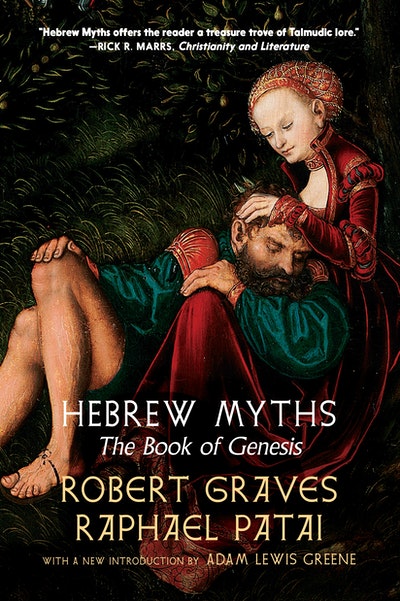- Published: 17 May 2022
- ISBN: 9781644210550
- Imprint: Seven Stories Press
- Format: Paperback
- Pages: 400
- RRP: $45.00
Hebrew Myths
The Book of Genesis
- Published: 17 May 2022
- ISBN: 9781644210550
- Imprint: Seven Stories Press
- Format: Paperback
- Pages: 400
- RRP: $45.00
"All the laconic scholarship and lightning sharp interpretations and insights which have made Graves' studies of the Greek myths one of the most seductive source books of the decade are here brought to bear with equal effectiveness on the book of Genesis." --Kirkus Reviews
"For its information and its insights, Hebrew Myths should be popular and valuable among anthropologists." --Omer C. Stewart, American Anthropologist
"This work not only treats texts deriving from the same larger world that produced Genesis, it also provides extensive documentation of the subsequent rabbinic legends that arose in an attempt to understand the 'fuller meaning' of the text. In this arena, Hebrew Myths offers the reader a treasure trove of Talmudic lore." --Rick R. Marrs, Christianity and Literature
